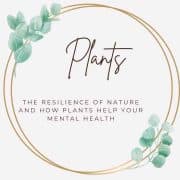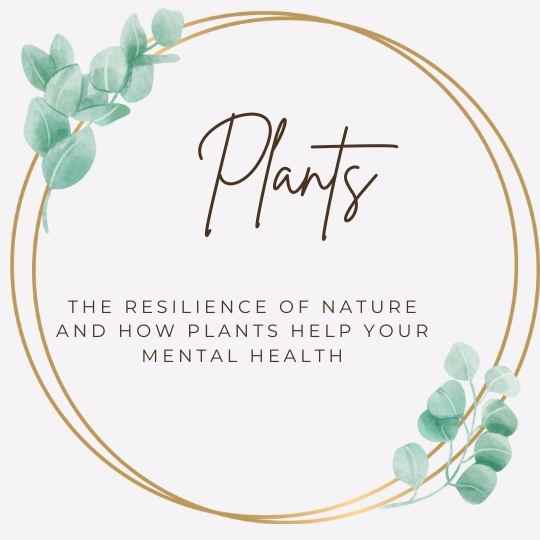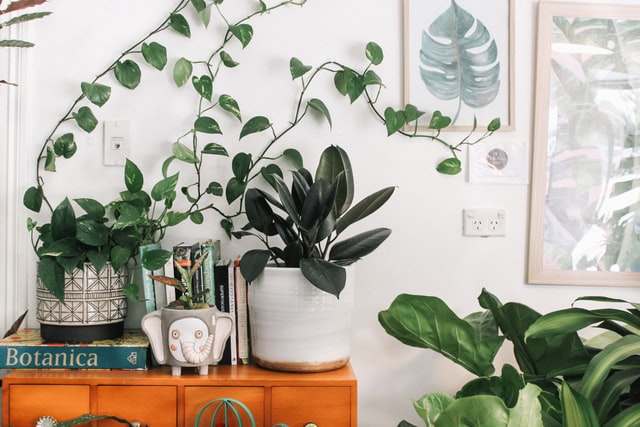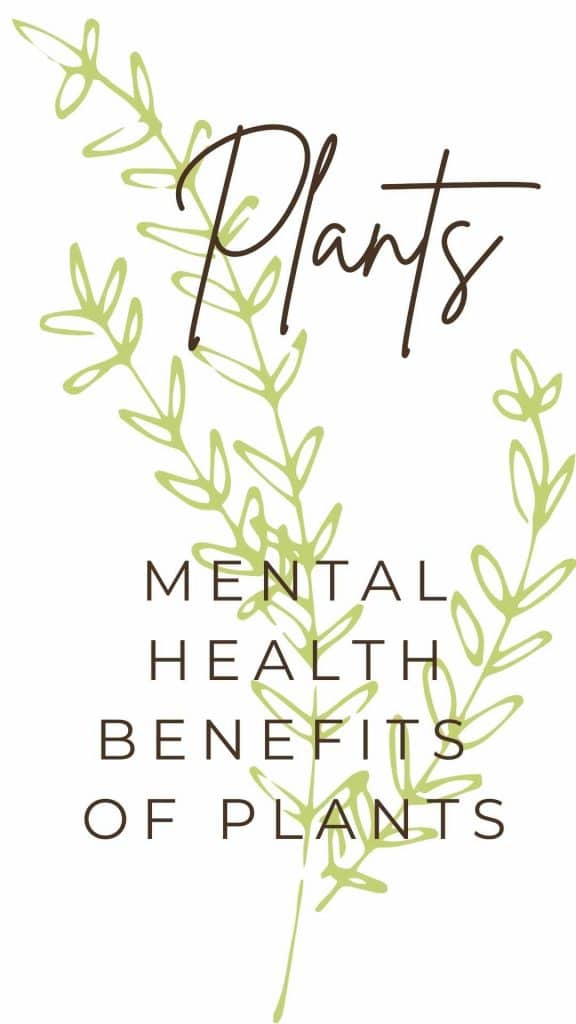

Do you keep plants in your home or office? Plant-keeping is one of the hobbies that grew exponentially during the pandemic. People instinctively seemed to know that they needed the healing nature of living beings, plants included. Plants have been shown to improve mental health in a variety of ways. And, it turns out, taking care of plants might inspire us to take better care of ourselves and each other as well.
Plant Keeping in the Pandemic
Trees.com conducted an interesting study exploring plant-keeping during the pandemic and its relationship to mental health. They found that more than two thirds of Americans took up plants as a hobby since the start of the pandemic. Nine out of ten of them are sure they’ll continue this hobby for many years to come. Most interesting, perhaps, is that 88% of them said that taking care of plants improved their mental health. People continue to reap these benefits even as we’ve moved on from the height of the pandemic.

Photo by Prudence Earl on Unsplash
Plants Help Reduce Loneliness
People dealt with many different issues during the pandemic. However, loneliness was often right at the top of them all. After all, due to quarantine, limited travel, and other restrictions, many people just didn’t get to see their friends, family, and associates nearly as much as they used to.
As a result, people started having more conversations on the phone and through video chat. They also adopted pets in nearly unprecedented numbers. And, yes, they started keeping plants. Plants might talk back to you in a language that’s clear and obvious, but tending to a plant puts you deeply in touch with the needs of a living thing. This helps remind you that you are not alone in the world.
According to the Trees.com survey, the people most likely to start plant-keeping during the pandemic were in their late thirties and early forties. However, older Americans were the ones who overwhelmingly noted how much taking care of plants improved their mental health. More than ninety percent of older Americans surveyed agreed about this. And 100% of widowed people said that it improved their mental health.

Photo by engin akyurt on Unsplash
Other Mental Health Benefits of Plants
Plants aren’t just company. They also provide you with a focused activity, a reason to get out of bed in the morning. If you were sidelined from work during the pandemic, you might have found that one day just blended into another. However, if you needed to get up each day and make sure your plants had light and water, then you likely fared better than people who weren’t doing the same.
Other mental health benefits of plants include:
Stress reduction
Exposure to plants has been shown to reduce stress and anxiety levels in individuals. Studies have found that spending time in nature, such as gardening or walking in a park, can lower cortisol levels and improve mood.
Improved mood
Plants can help to improve mood and reduce symptoms of depression. The act of caring for a plant and watching it grow can provide a sense of purpose and fulfillment, which can be particularly beneficial for individuals who are struggling with feelings of hopelessness or helplessness.
Increased creativity
Plants can stimulate creativity and boost productivity. Studies have found that the presence of plants in the workplace can improve concentration, memory, and problem-solving skills.
Improved cognitive function
Exposure to nature and plants has been shown to improve cognitive function, including attention and memory. Studies have found that spending time in green spaces can help to improve cognitive performance and reduce mental fatigue.
Decreased symptoms of ADHD
Some studies suggest that exposure to nature and plants can help to decrease symptoms of attention-deficit/hyperactivity disorder (ADHD), including impulsivity and hyperactivity.
Increased resilience
Plants can help individuals to build resilience and cope with stressors. Caring for plants can help to foster a sense of responsibility and mastery, which can contribute to feelings of self-efficacy and resilience.
Better sleep
Exposure to nature and plants has been shown to improve sleep quality and duration. Studies have found that spending time in nature, particularly in green spaces, can help to regulate sleep-wake cycles and promote deeper, more restful sleep.
Improved self-esteem
Caring for plants can help to improve self-esteem and feelings of self-worth. Watching a plant grow and thrive can provide a sense of accomplishment and pride, which can be particularly beneficial for individuals who struggle with low self-esteem.
Plants Help With Physical Health As Well
According to the survey, more than two thirds of respondents said that plant keeping helped improve their physical health as well. As we know, physical health and mental health are inextricably linked. Improving one helps improve the other. Plants might work first on your mental health and then on your physical well being or vice versa. Hillside reports that just a few of the physical benefits of plants are better air quality, increased activity, decreased risk of illness, and a tendency towards healthier eating once you’ve established relationships with your plants.
Plants Help With Eco-Grief and Eco-Anxiety
In her book “The Book of Hope: A Survival Guide For Trying Times” (authored with Douglas Abrams and Gail Hudson), Jane Goodall explains that there’s a relationship between climate change and the COVID-19 pandemic. In short, by destroying natural habitats, we bring various species closer together, opening up the potential for the spread of zoonotic diseases. Aware of this, many people found themselves struggling with eco-grief and/or eco-anxiety during the pandemic.
What Is Eco-Anxiety?
These conditions are grief and anxiety related specifically to concerns, fears, and overwhelm about the climate crisis. Reading the news, watching documentaries, and learning about global warming can all lead to a feeling that there’s simply nothing that we can do to stop this train from going off of the tracks. In the face of such overwhelm, other mental health challenges can rise to the surface, sometimes debilitating us. However, plants can help. By taking small actions to give life to plants in our own environment, we exert some level of control. We make change. This helps.
The Resilience of Nature
Jane Goodall’s book is not about depression, despite all of the terrible things she’s seen in the world during her 90-ish years on this planet. Instead, it’s about hope. She shares how she continues to have hope in spite of her awareness of big global issues of all kinds. She notes that hope is not just optimism but rather optimism combined with action. We believe that we can make change and then we work to do so.
Survivor Trees
One of the reasons she gives for hope is how often she has seen the resilience of nature. She tells a beautiful story about two different sets of Survivor Trees. The first almost died, crushed under the rubble of the 9/11 towers. However, a woman rescued it, worked diligently to bring it back to life, and it’s now thriving back near its old spot.
The other is a pair of trees that survived the historic atomic bombing in Japan. Everyone said, correctly, that it would take years and years for plants to grow back from that devastation. And yet these two hundreds-year-old trees survived. They have blackened, bombed out sections. They are not unchanged. But they are alive and growing.
Restoration of Nature
Goodall gives many other examples of the restoration and resilience of nature. Look for these examples as inspiration for hope. Consider, for example, how the natural life changed even in urban areas during the early days of the pandemic. Here in San Francisco, we began to see wildlife and plants emerge that hadn’t been vibrant in certain neighborhoods for years. It happened surprisingly quickly, almost as soon as the streets emptied of cars during the shutdown. Need a more vivid example? The film “The Biggest Little Farm” is a terrific one.
How to Improve Your Mental Health With Plants
Want to enhance your own mental health with plants? Here are some tips:
- Start small. You only need to work with one plant to get started.
- Choose plants that are specific to your mental health needs. Lavender is a calming plant, for example. Learn more here.
- Don’t give up and do be gentle with yourself. Some of us don’t have natural green thumbs. Learn classes, ask a gardener for help, find out which plants do best in your area.
- Once you have plants, take time every day to sit with them. Sing to them, clean them, watch them, listen to them. What can they teach you in the silence?
- Share your plants with others on social media. This is a great way to connect with like-minded people and can further help create community in times of loneliness.
- Plant keeping can be an individual activity, a couples’ thing, or something that you do as a family. What works best for you?
- Use your plants. Grow herbs, fruits, vegetables. Make soap or paper incorporating your plants. The more you do with your hands, the better you’ll often feel.
Of course, self-designed plant therapy is no substitute for therapy with a licensed professional. If you’re feeling the effects of the pandemic and need additional support, contact us today to find out how we can help.




3 thoughts on “Keeping Plants Improves Mental Health”
Comments are closed.